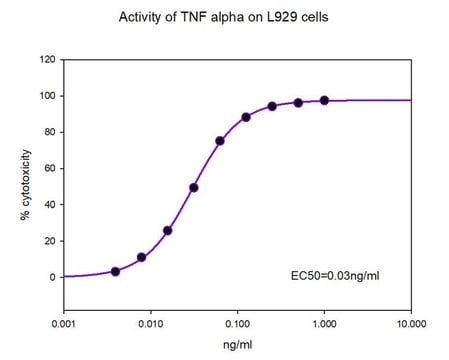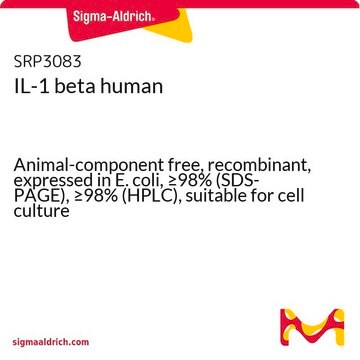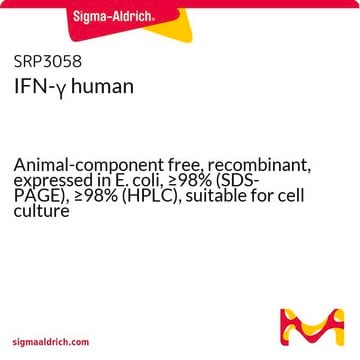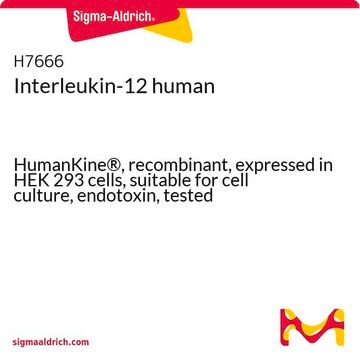H6291
IL-1β human
HumanKine®, recombinant, Xeno-free, >95% (SDS-PAGE), suitable for cell culture
Synonym(s):
IL-1β, Lymphocyte activating factor
About This Item
Recommended Products
product name
Interleukin-1β human, IL-1β, recombinant, expressed in HEK 293 cells, HumanKine®, suitable for cell culture, endotoxin tested
biological source
human
Quality Level
recombinant
expressed in HEK 293 cells
Assay
≥95% (SDS-PAGE)
form
lyophilized powder
potency
≤0.05 ng/mL EC50
quality
endotoxin tested
mol wt
dimer 18-25 kDa (glycosylated)
packaging
pkg of 10 μg
technique(s)
cell culture | mammalian: suitable
impurities
<1 EU/μg
UniProt accession no.
storage temp.
−20°C
Gene Information
human ... IL1B(3553)
Looking for similar products? Visit Product Comparison Guide
Biochem/physiol Actions
Physical form
Preparation Note
Analysis Note
Legal Information
Storage Class Code
11 - Combustible Solids
WGK
WGK 3
Flash Point(F)
Not applicable
Flash Point(C)
Not applicable
Certificates of Analysis (COA)
Search for Certificates of Analysis (COA) by entering the products Lot/Batch Number. Lot and Batch Numbers can be found on a product’s label following the words ‘Lot’ or ‘Batch’.
Already Own This Product?
Find documentation for the products that you have recently purchased in the Document Library.
Customers Also Viewed
Articles
Discover answers to your frequently asked questions about animal component-free, xenobiotic-free, and chemically defined media and reagents for cell culture.
Discover answers to your frequently asked questions about animal component-free, xenobiotic-free, and chemically defined media and reagents for cell culture.
Discover answers to your frequently asked questions about animal component-free, xenobiotic-free, and chemically defined media and reagents for cell culture.
Discover answers to your frequently asked questions about animal component-free, xenobiotic-free, and chemically defined media and reagents for cell culture.
Our team of scientists has experience in all areas of research including Life Science, Material Science, Chemical Synthesis, Chromatography, Analytical and many others.
Contact Technical Service








